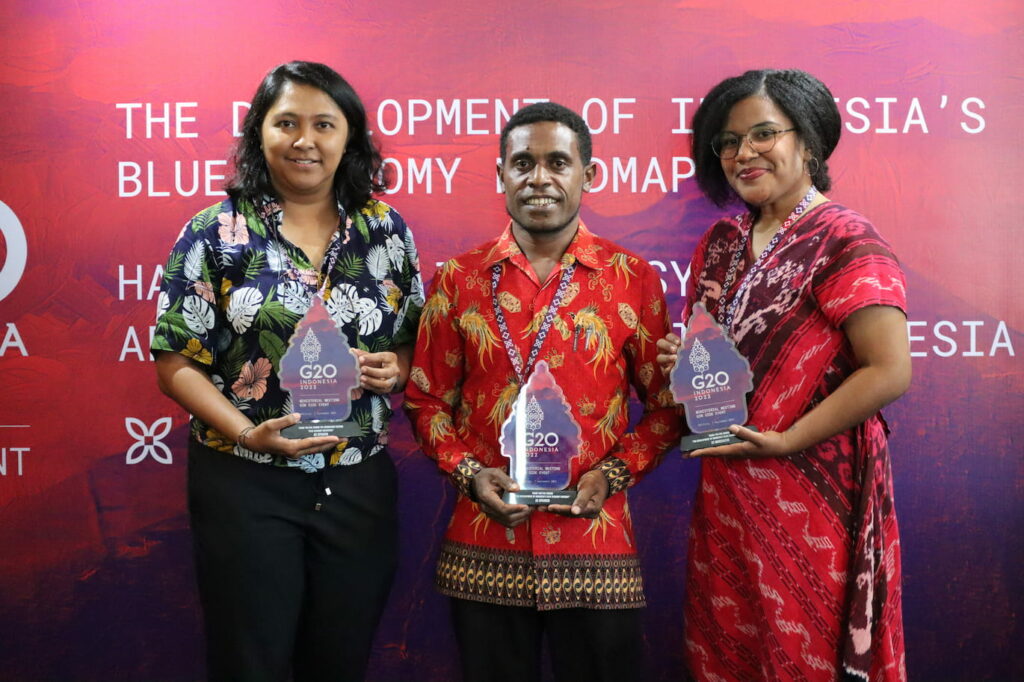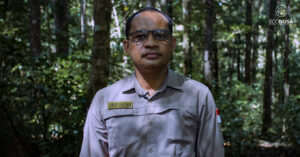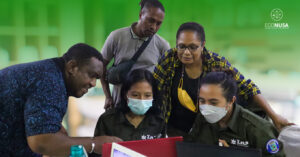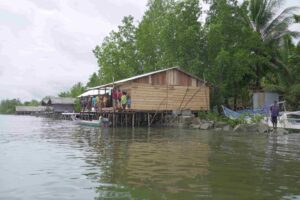
As an archipelagic country, Indonesia has large potential from sea. Our country is on the top two of the largest fish producer in the world after China. Eastern Indonesia sea as the location of coral triangle is the home for 76 percent of world coral reef species and 37 percent of global coral reef fish species.
“The heart of coral triangle is the home for 45 percent of Indonesian fish stock,” said CEO of EcoNusa, Bustar Maitar, in a seminar on The Development of Indonesia’s Blue Economy Roadmap, a G20 side event held in Belitung, Wednesday, 7 September 2022.
As to Bustar, eastern Indonesia is the home for 39 million hectares of forests. The 45 percent of tropical rainforests and 41 percent of mangrove forests in Indonesia are in this region. Natural resources that remain well-preserved here does not merely stabilize the world climate, but also has very large potential for blue economy. Blue economy is the eco-friendly utilization of sea resources in support of economic growth, people’s welfare, livelihood, and sea ecosystem conservation.
EcoNusa supports the government’s effort in blue economy by, among others, supporting the implementation of pilot province for low carbon development in Papua, West Papua, and Maluku. “It includes the support for the masterplan of 25 year development plan of Tanah Papua,” said Bustar. EcoNusa also promotes the best practices performed by the indigenous peoples as the sources of reference to the government in strengthening the policies on forests governance and sustainable development.

The consistently supported best practices are traditional conservation, egek, performed by the community of Moi Tribe in Malaumkarta Village, Sorong Village, West Papua. In the “Blue Economy Initiatives” Showcasing Session as one of the G20 side events in Belitung on 8 September 2022, Jefri Mobalen, the chief of Indigenous Peoples of the Malaumkarta who is from the Malaumkarta Young Generation Association (PGM) shared egek as local wisdom to preserve the sea resources in Malaumkarta.
Egek is the traditional conservation that bans the utilization of natural resources at a certain place in a certain spot. According to Jefri, the ban imposition was due to the fact that many coral reef was destroyed by explosive and potassium for fishing in 1990s. “We ban the use of destructive fishing tools that damage sea ecosystem,” he said.
In addition to the ban of destructive fishing tool, the community is also prohibited for taking some sorts of sea species such as lobster and sea cucumber in a certain period of time. Picking the species here is allowed after the egek is retracted.
After years of closure, Moi Tribe community retracted the egek on 13 June 2022 through a traditional ritual procession. They were then allowed to catch the formerly-banned animals using safe fishing tools such as fishing rod. Their catches were for domestic consumption and sale to the market. In 2 months, their catches were worth Rp177 million. They spend the income here for the community needs and Malaumkarta church reconstruction.
In Maluku Island, best practices are also performed by the Moluccas Coastal Care (MCC). MCC actively educates the children and young people in Ambon, Gunung Api, Run, and Hatta Islands to safeguard their coastal areas and islands. “We focus on human investment because of the notion that at least there is one generation with knowledge to defend island and ecosystem and it is important,” said Teria Salhuteru, the MCC Chairwoman.
Not only establishing a learning center for children education, MCC jointly with EcoNusa also initiated a so-called Kewang Muda Maluku (Young Environmental Hero of Maluku). Kewang is traditional law institution in Maluku whose responsibility is to defend the terrestrial and sea nature. Kewang is also responsible for providing education on nature to the community. Traditionally, kewang is selected from a certain clan. The spirit of kewang to defend the nature is the legacy shared to young peoples.
Preserving nature sustainability is essential. Data from the Coordinating Ministry for Maritime Affairs and Investment show that the yearly economic value of coral reef is worth USD36,794 per hectare, mangrove USD9,900 per hectare, and seagrass USD19,004 per hectare. “If , for instance, we could defend the ecosystem and educate the community, we can get this yield,” said Teria.
Editor: Leo Wahyudi




